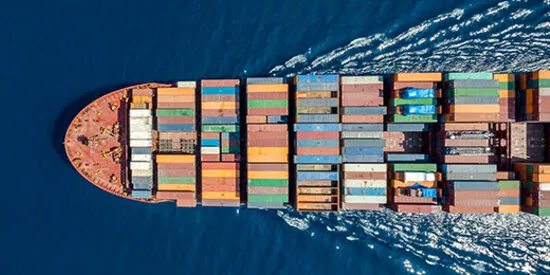
SWIFT gpi: the new standard in global payments
The globalisation of trade, coupled with the advent of fintechs, has brought major changes to the cross-border payment process.
Sabrina Fromager and Olivier Miet, respectively Product manager cross border payment and Deputy Head of Correspondent Banking at Societe Generale, explain how this service is a real step forward.
In the interest of offering a new standard in global payments, SWIFT - at the behest of several banks (including Societe Generale) - asked the banking community in 2015 for suggestions on how to improve cross-border payment execution services. As a result, the SWIFT Global Payment Innovation (SWIFT GPI) initiative was launched, based on four key principles: fast payments; end-to-end tracking of each payment in real time; fee and forex transparency; and unaltered remittance information on payments provided by the client. Societe Generale has been an active member of the SWIFT GPI initiative from the very beginning, as one of ten banks in the world on the cutting edge of this issue.
SG began processing cross-border payments for its clients using SWIFT GPI in November 2017, before it became the standard. SWIFT GPI has since attained that status, with more than 60% of all cross-border payments processed through this new service. Societe Generale currently offers SWIFT GPI in 11 countries*, across 200 GPI corridors. Other markets will soon follow, such as Russia, New York, Luxembourg, Romania and the Czech Republic. The Group's Moroccan subsidiary has launched SWIFT GPI on the African market. Societe Generale's goal is to offer the same level of global payment service to all Corporate and Institutional clients.
"Stop & Recall Payment"
With SWIFT GPI, payments can be located in real time, whether they have yet to leave the issuing bank, are en route, or have been received by the beneficiary bank. Such real-time information has become a critical tool in combating fraudulent payments. Because the payment is still in transit, the bank issues a real-time "Stop & Recall" GPI message. The payment is then cancelled (stop payment) and recalled.
More detailed assesment
More than 3,600 banks are committed to improving how global payments are processed, with 630 having signed up for the SWIFT GPI initiative. These banks are contractually obligated to observe SWIFT GPI principles, which are assessed monthly by SWIFT via the "Observer" application, and agree for their performances to be visible to other banks. As a result, their performances can be cross-compared and order execution speed more accurately evaluated. For example, in September, a global payment issued in favour of Societe Generale clients in France was executed in less than five minutes 62% of the time, versus 40% for the sector average. From a more general standpoint, Societe Generale has been compliant with all GPI quality metrics since the initiative was launched in 2017.
GPI correspondent banks
To ensure that the payments of Societe Generale's corporate clients in Europe (for example) are received, the bank relies on financial institutions outside France. When a corporate needs to send Australian dollars to Sydney, Societe Generale makes sure the payment is processed using the GPI standard by its Australian correspondent bank. It is vitally important to build a correspondent banking network with institutions that also adhere to the SWIFT GPI initiative. Conversely, when corporates based abroad need to pay Societe Generale clients in France or Europe, the bank also handles the payment via the GPI service, and delivers the relevant information on the payment to the correspondent bank. In its relations with correspondent banks outside France, Societe Generale was actually one of the first banks to communicate with absolute transparency on the speed of payment execution and to provide credit confirmation messages, which is a real advantage. It should be noted that all transactions entrusted to Societe Generale by foreign banks have been processed in accordance with the GPI standard since 2017.
Payment tracker
The SWIFT community was also interested in developing its global payment services for corporates. In 2018, Societe Generale took part in the pilot programme "GPI for Corporates", which called on large multi-national corporations to help define new services for their international payments. Participating corporates showed a keen interest in the information provided by the Tracker. The Tracker is a tool used by banks to provide corporate treasury departments with real-time end-to-end information on the status of each payment, ending with confirmation that the beneficiary's account has been credited, even if the beneficiary bank is not GPI. Treasury departments also see the exact amounts credited to their beneficiaries, i.e. including inter-bank fees charged on the transactions. Once again, Societe Generale's GPI reporting is transparent, indicating which party is charged which fee by which bank. It is also transparent on foreign exchange rates. With the pilot programme complete, in October 2018 Societe Generale become the first "live" bank in the world capable of remotely transmitting the Tracker report to its clients in 30 minutes or less, making it the only bank in France to offer this type of reporting service, which it plans to offer across the board by the end of 2019.
Furthermore, when tens of thousands of cross-border payments are processed each and every day, the likelihood of a problem occurring cannot be ruled out. With the Tracker, however, the bank can find the client that initiated the payment and can contact the client's bank directly to get the missing information and finalise the payment.
SWIFT GPI for all?
With the globalisation of trade, international payments have taken off. They aren't just for large corporates any more, however. For that reason Societe Generale is working with SWIFT to determine how the SWIFT GPI service can benefit other target client segments.
Another potential avenue that Societe Generale is brainstorming with SWIFT is the connection of global and European instant payments. As it stands, these payments have been developed in Europe on a country-by-country basis (Societe Generale processes 35% of all instant payments carried out by banks in France). Today, banks are starting to think about how to execute global payments in "instant payment" mode in France and be credited in Australia with a connection to Australia's "Faster Payment" system... the goal once again being to achieve real-time end-to-end processing.
* Belgium, France, Germany, Hong Kong, Italy, Monaco, Netherlands, Singapore, Spain, Switzerland, United Kingdom




